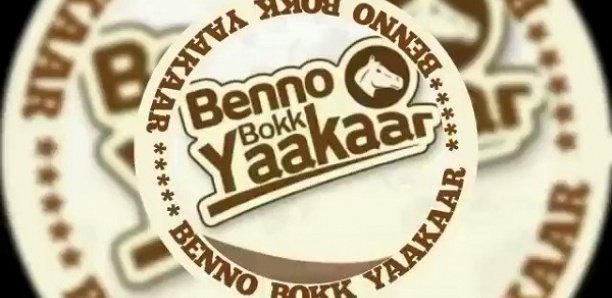They Played with Fire and Burnt Down the Benno Bokk Yaakaar (BBY) House!

It was a feeling of relief that animated most voters, having been able to fulfil their civic duty, that of participating in the election of the person who will be in charge of leading the country’s destiny for the next five years. This gesture should be commonplace in a country that has been voting, according to the modern electoral system, since 1848, but, in this year 2024, it has become a great victory for the People to be able to devote themselves to this tradition. Indeed, all sorts of obstacles were selfishly placed in the way of the electoral process by power-hungry political players, to the point that we missed the first round of voting on 25 February 2024. Doubt had set in, and voters were still sceptical about the idea of voting on 24 March 2024. The result was a real upsurge. They came out in greater numbers than in the general elections, but fewer than in the 2019 presidential elections, to express their free choice more than ever before.
Read the column – Macky Sall’s Big Loss
The message that voters seemed to want to send was that, more than ever, it is the voters who decide the destiny of their nation and the identity of the person they choose to lead them. The underhand manoeuvres failed to get the better of their determination and a surge of pride, of revolt. We witnessed a kind of referendum to vote on the record of Macky Sall’s regime. The programmes presented to voters and the candidates’ profiles were not decisive factors in their choice. In a caricatural way, we can say that Pastef’s feat was to sell an idea, a utopia, a project that each of them could carry and win. In this way, the masses would be behind any bearer of the pennant.
The other lesson to be learned from this electoral contest is that the voters showed unfailing courage and valour. They refused to give in to all forms of intimidation. This is undoubtedly another bitter defeat for those who were hoping, right up to the last minute, to prevent the holding of an election for which they were not qualified. Many were able to overcome their fears. This attitude was to be expected, as citizens experienced the electoral campaign with a certain festive fever, despite the fact that it took place under difficult conditions due to the reduction in its duration as a result of the constraints of adapting the electoral timetable to make up for the time lost by the decision to postpone the election, initially scheduled for 25 February.
Read the column – Maïmouna and our Guilty Conscience
The best indicator was the jubilation that accompanied caravans like that of candidate Amadou Ba from Cap Skiring to Ziguinchor, or in areas of Casamance considered perilous for political figures close to Macky Sall’s government. The « Diomaye President » coalition was also able to parade in areas that appeared hostile. It is also gratifying that, unlike in 2019, journalists were able to report the results from the polling stations at their leisure on election night.
At the time of going to press, the results had not yet been compiled. Nevertheless, some general observations can be made. The votes cast showed that the plethora of candidates does not mean that votes are dispersed. The ballot mainly indicated a bipolarisation of the electorate between the Benno bokk yaaakar and ex-Pastef camps. This lesson should certainly give fresh thought to the conditions under which candidates are selected. Once again, the filter or sieve of far-fetched and fanciful candidates should help to clarify the political game. It is clear that a great deal of money and energy was spent for nothing, on candidates who competed for ridicule. It is also clear that the two camps have practically retained their electoral strongholds. Voters seemed to vote in this presidential election in the same way as in the legislative elections.
Read the column – Forgive Ousmane Sonko? Yes, but Senegal Deserves a Repented!
The Diourbel-Touba area remained in opposition, as did Dakar and its suburbs, and Ziguinchor. The vote in Fouta remained largely in favour of the Bby candidate, as did the vote in the many departments of the regions of Saint-Louis, Kolda, Fatick, Tambacounda, Kédougou, Kaffrine, Kaolack and others. Bassirou Diomaye Faye’s high scores in urban areas were reinforced by divisions within Bby. The gaps were very large for candidate Amadou Ba. The Bby camp tried rather belatedly to mobilise behind Amadou Ba, during the very last days of the campaign, but the damage had already been done. The hostility shown by President Macky Sall towards his former Prime Minister, before he got his act together, did not fail to reflect on many of those close to him who took the suicidal step of trying to punish Amadou Ba for who knows what crime? These leaders played with fire and ended up setting fire to the Bby house. President Macky Sall took a number of actions that could have given momentum to Bassirou Diomaye Faye’s campaign.
The vote also revealed that the allies of the former Pastef in the Yewwi askan wi (Yaw) coalition, who had chosen to go it alone, such as Déthié Fall, Khalifa Ababacar Sall and the Pur candidate, failed to bring their traditional voters with them. The rebellion of Pds leaders against the voting instructions given by Karim Wade in favour of Bassirou Diomaye Faye also failed to benefit Amadou Ba.
By Madiambal DIAGNE / mdiagne@lequotidien.sn

